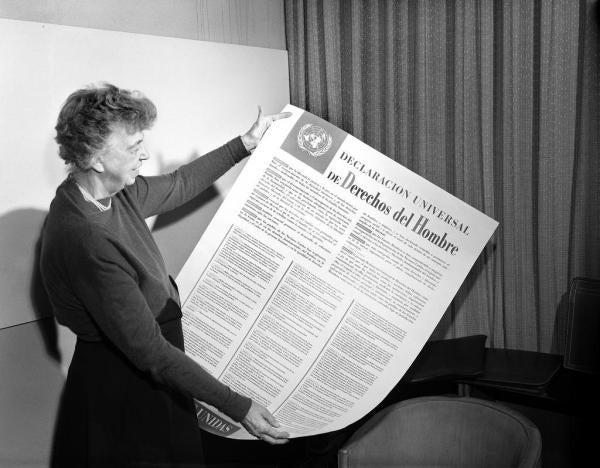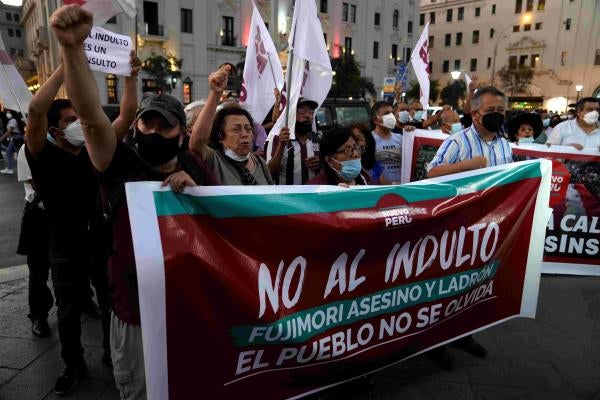Lire la version en français / Lea la versión en español
In a brief interview for Spanish national radio yesterday, I was asked about the Universal Declaration of Human Rights, which marks its 75th anniversary on Sunday.
“Does it still matter?” was the first question. Particularly given the atrocities and other human rights horrors we see happening today – and over the past three quarters of a century. Is the Universal Declaration of Human Rights still relevant?
I worry my answer to the journalist may not have captured my true feelings. Having thought about it more, here’s how I should have replied…
Humanity is divided over many things and will forever be so.
You may find comfort in your religion, your culture, and your language – these and other elements of yourself that stem from your birth and upbringing. But what are these specifics to others who were born elsewhere and raised differently? Inevitably, they have less meaning for them.
Of course, you can (and should) respect the traditions of others, but you are unlikely to ever feel a part of them, to achieve a complete sense of solidarity with them. You can never fully appreciate how the depth of their attachment to their traditions moves them, just as your traditions will never guide others like they guide you.
In this depth of human diversity, it’s too easy for such things to divide us, and too often ruinously so. If humanity is not then to fall again and again into the barbarity brought on by coarse fears and dark hatreds forever lurking within us, we must ask: what brings us together? What is universal in us?
For me, this is precisely why the Universal Declaration of Human Rights is so important. It touches us more deeply than the superficial differences brought about by birth and geography. There is something that makes us human that is more fundamental than the language we speak or the gods we believe in.
In its 30 articles put to paper in 1948 – in the immediate aftermath of previously unimagined inhumanity – we see 30 rights and freedoms that belong to all of us. These are 30 points we can all surely agree on that speaks, as the Declaration’s preamble says, “of the inherent dignity and of the equal and inalienable rights of all.”
From Article One: “All human beings are born free and equal in dignity and rights.”
From Article Two: “Everyone is entitled to all the rights and freedoms set forth in this Declaration, without distinction of any kind, such as race, colour, sex, language, religion, political or other opinion, national or social origin, property, birth or other status.”
From Article Three: “Everyone has the right to life, liberty and security of person.”
From Article Four: “No one shall be held in slavery or servitude.”
From Article Five: “No one shall be subjected to torture or to cruel, inhuman or degrading treatment or punishment.”
And 25 others… These are the basics, of course, but they form the foundation of what we can all agree on, regardless of where we come from and what traditions we were brought up in.
We can all agree on one more thing as well: the Universal Declaration of Human Rights has not yet become, as Eleanor Roosevelt, who chaired its drafting committee, had hoped, “the international Magna Carta of all men everywhere.”
But that’s not the fault of the Declaration’s framers 75 years ago.
It’s ours.
“Does it still matter?” was the journalist’s question to me yesterday, and the answer is: it matters when we make it matter. A document left to gather dust is of no use to anyone, and to consider it irrelevant would only make it so. We should expect it to matter and never stop demanding that our politicians make it matter.
To mark the 75th anniversary of the Universal Declaration of Human Rights, we should insist that it is not simply revered annually but put into practice daily.










